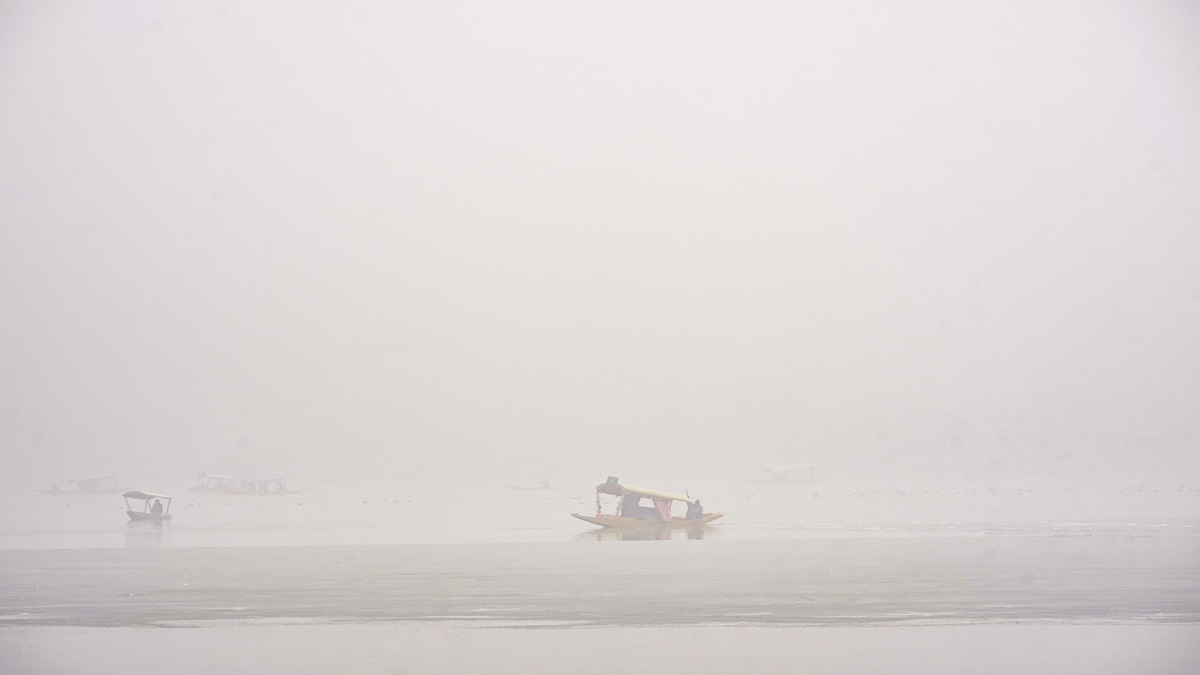 |
|
The recent cold wave gripping Srinagar, the summer capital of Jammu and Kashmir, has significantly disrupted air travel and daily life. The intensity of the cold, coupled with dense fog, resulted in the cancellation of ten flights at Srinagar International Airport on Sunday. This disruption underscores the significant impact of adverse weather conditions on the region's connectivity and the challenges faced by residents and travelers alike. The India Meteorological Department (IMD) issued an orange alert, highlighting the severity of the predicted snowfall. This warning serves as a crucial measure to prepare residents, authorities, and tourists for the impending weather event. The low visibility, reported to be as low as 50 meters in the early morning, forced airlines to postpone their scheduled departures until visibility improved. This delay, combined with the subsequent cancellations, caused substantial inconvenience to passengers, illustrating the dependence of the region on air travel and the vulnerability of this mode of transport to severe weather.
The IMD's forecast anticipates a moderate to strong western disturbance affecting Jammu and Kashmir, leading to widespread light to moderate snowfall. This weather pattern is projected to peak from Saturday night into Monday morning. However, the prediction of heavy snowfall over the middle and higher reaches of Kashmir and the Chenab Valley emphasizes a heightened risk of significant disruptions. The orange alert issued for Sunday specifically warns of widespread snowfall with heavy snowfall in isolated areas. This warning system effectively communicates the level of risk to the public and allows authorities to proactively implement measures to mitigate potential hazards. Such measures often include advisories to avoid unnecessary travel and heightened preparedness for potential rescue operations, showcasing the importance of weather forecasting in a region vulnerable to severe weather events.
The severity of the cold wave is further underscored by the extremely low temperatures recorded across various locations in the Kashmir Valley. Kokernag, a town in south Kashmir, recorded a chilling minus 8.1 degrees Celsius. Srinagar, the region's main city, experienced a minimum temperature of minus 2.5 degrees Celsius. Gulmarg, a popular tourist destination known for its scenic beauty, recorded a low of minus 4 degrees Celsius. Even Pahalgam, one of the base camps for the Amarnath Yatra pilgrimage, registered a minimum temperature of minus 3.2 degrees Celsius. These low temperatures highlight the harsh conditions experienced by residents and the challenges posed to those undertaking outdoor activities or pilgrimages. The extremely low temperatures, combined with the heavy snowfall forecast, create a potentially dangerous combination, underlining the need for caution and careful preparation from both residents and visitors.
The impact of this severe weather extends beyond mere inconvenience. The cancellation of flights disrupts not only individual travel plans but also impacts the region's economy, particularly its tourism sector. The heavy snowfall carries the potential for infrastructure damage, power outages, and road closures, further compounding the challenges. The authorities' call for caution and avoidance of unnecessary travel during adverse weather conditions reflects a pragmatic approach to minimizing risks. The focus on safety and minimizing disruptions underscores the importance of preparedness and adherence to safety guidelines during severe weather events. The situation in Srinagar highlights the intricate interplay between weather patterns, infrastructure, and human activity in a region heavily influenced by its geography and climate.
The situation in Srinagar serves as a compelling case study of the challenges posed by extreme weather events in vulnerable regions. It underscores the importance of effective weather forecasting, robust early warning systems, and proactive disaster preparedness measures. The collaborative efforts of the meteorological department, airport authorities, and local governments are crucial in mitigating the impact of such events and ensuring the safety and well-being of the population. Further research into climate change and its impact on regional weather patterns is essential to develop more effective strategies for adaptation and mitigation in the face of increasingly frequent and intense weather events. The experience in Srinagar also emphasizes the need for infrastructure resilience and contingency planning to minimize the economic and social disruptions caused by severe weather.
Source: Cold wave in Srinagar continues, 10 flights cancelled due to dense fog
